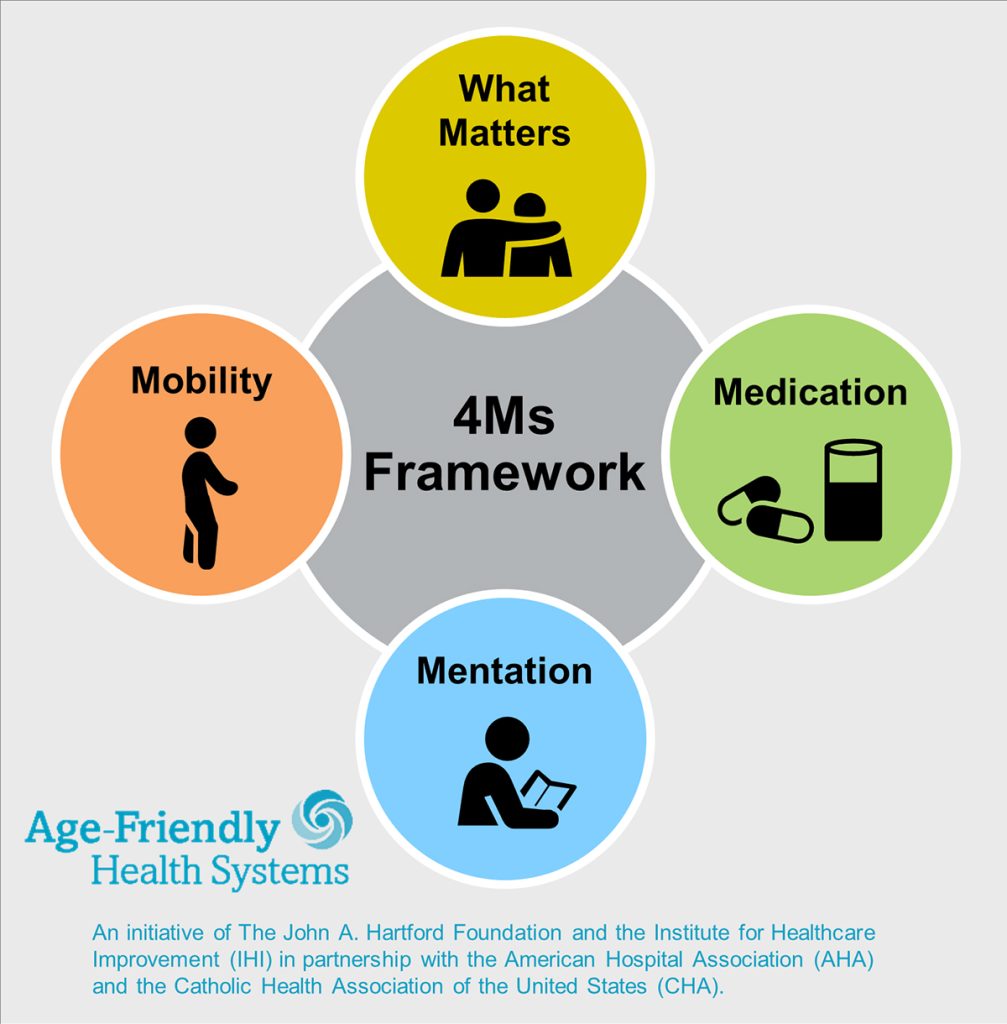At Mercy Hospital of Buffalo we believe that older adults deserve high-value, evidence-based health care that treats them with respect and meets their goals and preferences. That is why Mercy Hospital joined the Age- Friendly Health Systems movement, a nationwide initiative to improve care for older adults. We’re proud to be working with The John A. Hartford Foundation, the American Hospital Association and Catholic Health Association of the United States on this initiative that puts four important interventions into practice that can lead to enhanced care for older adults—they are known as the 4Ms: What Matters, Medication, Mind, and Mobility.


Communication is imperative to ensuring that your care team understands your health goals.
It is not uncommon for older adults to be prescribed a variety of medications, and this could result in additional side effects. A medication that you have taken earlier in life may affect you differently now that you are older.
Just as our physical bodies change with age, so too do our minds. You may notice that your mood or memory is changing as you age. This is a normal part of aging but there are things you can do that are good for your mind.
Staying active can be a factor in maintaining overall health and independence, but staying safe while moving is just as important. There are things you can do to increase your ability to stay both mobile and safe.
The Age-Friendly Health Systems (AFHS) initiative was launched in 2017 by The John A. Hartford Foundation and IHI, in partnership with the American Hospital Association and Catholic Health Association of the United States to help hospitals and other healthcare settings implement a set of evidence-based practices specifically designed to improve care for older adults. As part of this nationwide movement, Mercy Hospital collaborates with more than 100 health systems across the country by sharing data and best practices to achieve age-friendly, tailored care for their older patient population. For more information, visit www.ihi.org/agefriendly.